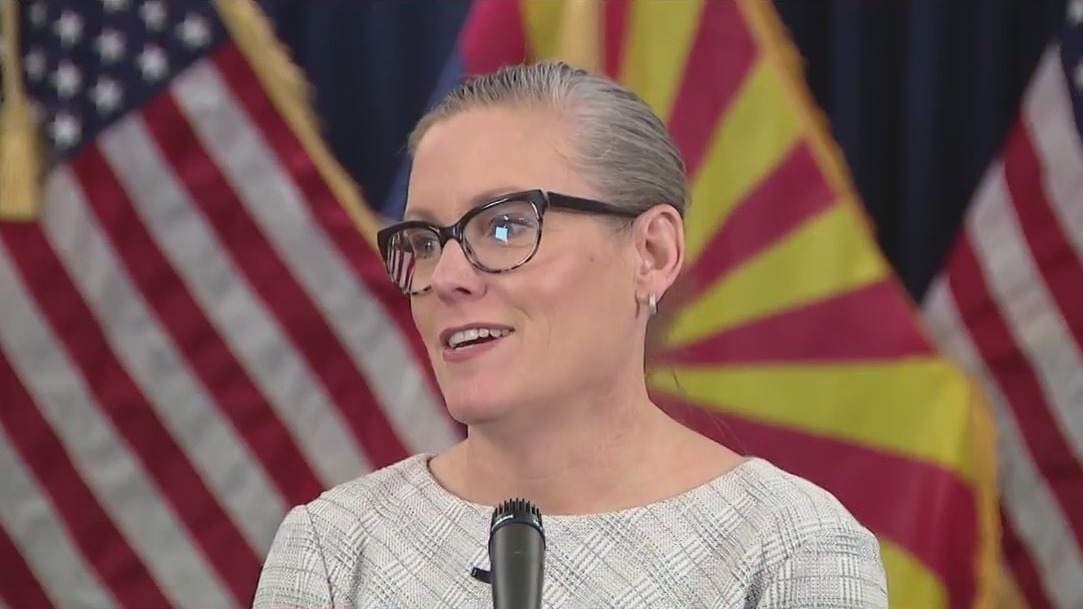Arizona Gov. Hobbs vetoes bill banning 'critical race theory' in schools

Arizona Governor Katie Hobbs vetoes bill that aims to ban Critical Race Theory
SB 1305, had it received Gov. Hobb's signature, would have banned the teaching of what is known as Critical Race Theory (CRT) in classrooms, with schools facing a fine up to $5,000 for any violations. There is no evidence CRT is taught in Arizona classrooms, but many still argue their students are being taught it. FOX 10's Stephanie Bennett reports.
PHOENIX - Arizona Gov. Katie Hobbs has vetoed an education bill that would ban "critical race theory," instruction that "promotes or advocates for any form of blame or judgment on the basis of race, ethnicity or sex."
Hobbs announced on March 9 that she has vetoed SB 1305, calling a bill that only serves to "divide and antagonize."
Schools would have faced a fine of up to $5,000 for any violations.
Bills like SB 1305 "serve only to divide and antagonize," letter to state legislature reads
In a short letter sent to legislators, Gov. Hobbs wrote that it is "time to stop pushing students and teachers into culture wars rooted in fear mongering and evidence-free accusation."
"I urge the Legislature to work with me on the real issues affecting Arizona schools: underfunded classrooms, a growing educator retention crisis, and school buildings in need of repair and replacement," read a portion of the letter.
During a news conference, Gov. Hobbs said CRT is not taught in Arizona.
"We don't teach CRT in Arizona," Gov. Hobbs said. "The bill sponsor himself couldn’t cite any specific examples of this actually happening. Again, it is not addressing a real issue we are having in the classrooms. We need to focus on how we keep good teachers, how we fund our schools."
Bill's GOP sponsor speaks out
The sponsor of SB 1305, State Sen. J.D. Mesnard, expressed disappointment and concern over Gov. Hobb's decision.
"Really it’s a slap in the face of the parents that have come forward expressing real concern with some of the assignments that their kids have had to complete," said State Sen. Mesnard.
State Sen. Mesnard also said he will continue to push the bill forward.
"I think it’s a real issue. I think it’s a growing issue, and what we have put in the bill was so far over the line as far as what’s appropriate to be taught in our schools that it should have been a no brainer," State Sen. Mesnard said.
What is Critical Race Theory?
According to the Associated Press, Critical Race Theory (CRT) is a way of thinking about America’s history through the lens of racism.
Scholars developed it during the 1970s and 1980s in response to what they viewed as a lack of racial progress following the civil rights legislation of the 1960s.
It centers on the idea that racism is systemic in the nation’s institutions and that they function to maintain the dominance of white people in society.
The architects of the theory argue that the United States was founded on the theft of land and labor and that federal law has preserved the unequal treatment of people on the basis of race. Proponents also believe race is culturally invented, not biological.
Kimberlé Crenshaw, executive director of the African American Policy Forum, a social justice think tank based in New York City, was one of the early proponents. Initially, she says, it was "simply about telling a more complete story of who we are."
Many Republicans view the concepts underlying critical race theory as an effort to rewrite American history and persuade white people that they are inherently racist and should feel guilty because of their advantages.
But the theory also has become somewhat of a catchall phrase to describe racial concepts some conservatives find objectionable, such as white privilege, systemic inequality and inherent bias.
The Associated Press (AP) contributed to this report.

